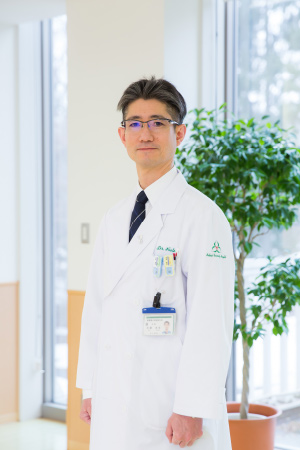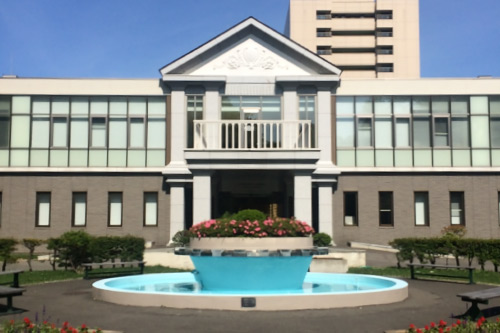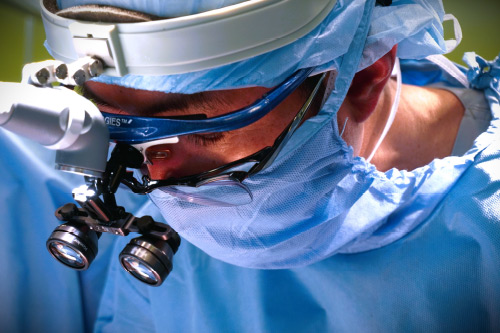Lung cancer has been the leading cause of death in Japan since 1995, claiming the lives of ~53,000 men and ~22,000 women annually (Ministry of Health, Labor and Welfare. 2019). Hokkaido unfortunately suffers from a much higher mortality than the national average (age-adjusted mortality 18.1 per 100,000 patient-years versus 14.5 per 100,000 patient-years nationally, for those under 75). This is partially attributable to our high smoking rate, with 32% of men and 15% of women being smokers, in addition to low rates of routine health checks.
Encouraging a healthy lifestyle that modifies risk factors for lung cancer, and detecting cancer at an earlier stage, is the joint responsibility of both the public and private sector.
Hokkaido University Hospital was an early pioneer in Japan in minimally invasive thoracic surgery, known as thoracoscopic surgery or VATS. More recently, we have expanded our capabilities in minimally invasive surgery (MIS) to perform surgery using a single, small incision,
called uniportal VATS, and using robots (RATS). MIS has particular benefits for patients who are elderly or who are high-risk f or surgery.
However, while MIS is generally well-suited for those with earl y-stage lung cancer, we are also experienced in the management of advanced lung cancer, including complex surgical resections and integrated multidisciplinary/multimodality treatment.
The two pillars of our clinical practice and research are "Pursuing more effective surgery" and "Ensuring the safety and efficacy of surgical resection in combination with chemotherapy, radiotherapy, and immunotherapy for advanced lung cancer". Despite the growing number of malignant lung tumor surgeries at Hokkaido University Hospital, the high proportion of cases completed using MIS techniques is a feature of our Department of Thoracic Surgery. At Hokkaido University Hospital, the Department of Thoracic Surgery, Department of Respiratory Medicine, Department of Medical Oncology, and Department of Radiation Oncology work closely together through a multidisciplinary tumor board to provide cutting-edge, integrated diagnosis and treatment to every patient. To reduce mortality from lung cancer, multidisciplinary care also includes research cooperation with basic science laboratories and pathology departments. We expect this mutual development will only be further strengthened with the introduction of our new Department of Thoracic Surgery.








